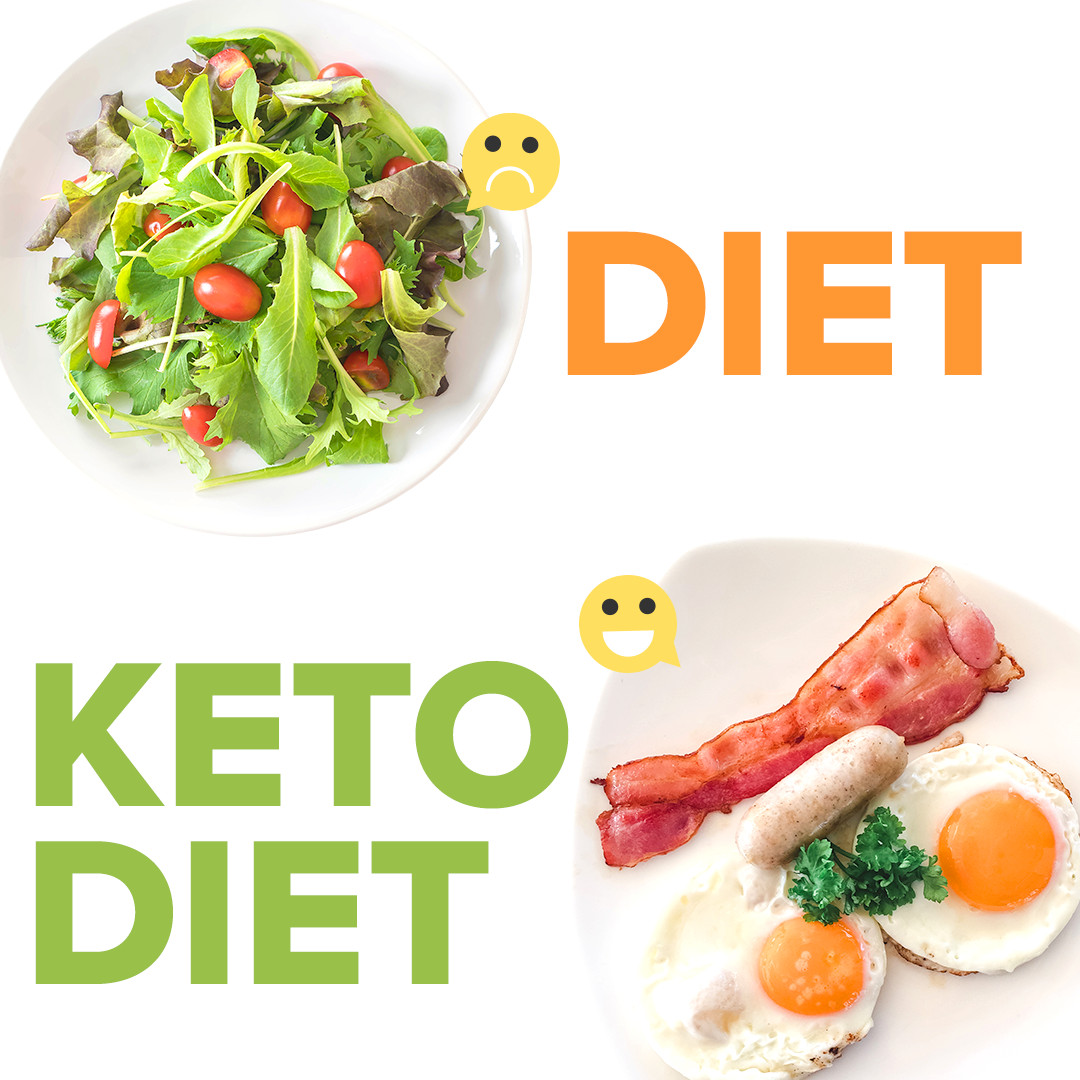The Keto Diet & You:
Good Fit?
The Keto Diet &
You: Good Fit?
The ketogenic diet has been
described as the biggest diet sensation - ever - in the nutrition industry. So
it's worth looking into for that reason alone.
A ketogenic diet is very
high in fat (about 75%), moderate in protein (about 20%), and very low in
carbohydrates (about 5%). It's intended to put the body into a state of
ketosis. In ketosis, the body breaks down fat to create ketones for energy,
rather than burning glucose.
Benefits of Keto?
Ketosis benefits us
typically hear about our weight loss, increased HDL ("good")
cholesterol, and improvement in type 2 diabetes, as well as decreased epileptic
seizure activity and inhibition of cancerous tumor growth.
Small studies have shown
promise for women with PCOS (polycystic ovary syndrome), an insulin-related
condition. This may be due to its possible (not conclusive) ability to reset
insulin sensitivity.
Everything Old Is
New Again?
The current Keto diet is not
the first time we've targeted carbs as a dietary villain. Medical trials with
low-carb eating and/or fasting go back to the 1850s and even earlier.
In 1967, Stillman
introduced The Doctor's Quick Weight Loss Diet, featuring essentially nothing
but low-fat protein and water.
Next came the Atkins diet
in 1972, high in fat and protein, low in carbs. It helped with weight loss and
also with diabetes, hypertension, and other metabolic conditions. It's still
popular today.
In 1996, Eades and Eades
introduced Protein Power, a very low-carb diet that seemed to help patients
with obesity, hypertension, high cholesterol, and/or diabetes.
So reducing carbs, as the Keto diet does, has a history of helping people lose weight and/or improve
metabolic factors.
Anecdotal evidence
supports that.
Does Keto Have Any other benefits?
Probable benefits maybe
seen with neurodegenerative conditions, such as multiple sclerosis, Alzheimer's, or Parkinson's, likely because these brain disorders are related to metabolic
disorders. In fact, Alzheimer's is now called Type 3 diabetes.
Care for these conditions
is best done under medical supervision.
Ketones also appear to improve
traumatic brain injury, based on research done on rats.
In the Interest of Full
Disclosure...
Initial weight loss with
the Keto diet is rapid. The body has used its stored glycogen (carb stored in
muscle) and dumped the water that's stored with it. After that, weight loss may
continue, but at a slower rate.
Metabolism shows an initial increase that seems to disappear within 4 weeks. Keto doesn't appear to offer long-term advantages in either fat loss or lean mass gains.
In some people, Keto seems to increase LDL ("bad") cholesterol.
The usually mentioned
"cons" of a ketogenic diet are nutrient deficiencies due to missing
food groups and an unpleasant transitional state called "Keto flu,"
which may last for days. It comprises hunger, dehydration, headaches, nausea,
fatigue, irritability, constipation, brain fog, sluggishness, poor focus, and
lack of motivation. Because these symptoms are so similar to those of people
quitting caffeine, Keto has been posited as a "detox" plan.
Other negatives include
problems with gut health on such a low-fiber diet and difficulties with
adherence.
Regarding workouts, the Keto diet probably offers no advantage for most people. In fact, the glycogen
depletion it induces may lead to hitting the wall (bonking). An athletic performance involving speed and power may be lower without glucose and carbohydrates
as fuel.
The International Olympic The committee has urged athletes to avoid low-carb diets. They may lead to poor
training adaptations and decreases in both power output and endurance. A
colleague of mine induced cardiac arrhythmias in rats exercising on a low-carb diet.
Due to the low-carb nature
of the Keto plan, my concern is how women may fare with respect to serotonin
synthesis and function. Carbs play a significant role in transporting
tryptophan (the serotonin precursor) to the brain, so serotonin levels might drop
without those carbs. How does that affect women in terms of mood, appetite,
impulsivity, and more?
What's the Bottom
Line?
Keto seems to be viable for
short-term weight-loss and the other health issues described above. Whether the
approach is suitable long-term is still in debate. Its benefits are still in
debate, as well. Critics cite possible kidney damage and the lack of long-term studies
and scientific evidence.
Overall, Keto seems to be
neither a long-term cure nor the ideal solution for those who just want to
"be healthier." Not least, the diet is difficult for many people to
follow consistently.
A preferable long-term food
plan might be a more balanced one that's low in sugar and "junky"
carbs and emphasizes healthful, high-fiber foods, including vegetables.
And now I invite you to
visit http://www.LastResortNutrition.com and grab your free Empower Me Consult
for tips on metabolic conditions, inflammation, fueling for workouts, weight
loss, and more. Discover how easy it is to make small shifts that produce big
results. You got this!
Brought to you by Dr. Joan Kent, best-selling author of Stronger Than Sugar: 7 Simple Steps to Defeat Sugar Addiction, Lift Your Mood and Transform Your Health.
Keto is everywhere; it's the new buzzword, the new favorite among those looking to shed pounds, and the new hate victim of the food-pyramid-spouting-eat-your-whole grains mainstream medical industry. The keto diet, while it is not the magic cure-all for every single disease on the planet, does a pretty dang good job at being the potential causer of healing many horrible conditions. So let's cut through the science, separate fact from fiction, and look at the benefits of the keto diet.
Benefit #1: Weight Loss
Okay, so this one isn't so astounding, but it is one of the most common reasons people embark on the keto diet. So why is weight loss usually so easy on the ketogenic diet instead of other regular diets? For all of the following reasons:
• The keto diet is composed of approximately 75% fat, 20 % protein, and 5% or fewer carbohydrates. The high-fat content and lack of sugar mean diminished cravings, lack of blood sugar swings and binges, and increased satiation. Increased satiation=eating less. Many people also have food sensitivities to grains, even gluten-free ones, so eliminating them may lead to an increased ability to absorb minerals like magnesium and potassium, which in turn means your body is more nourished and you have fewer cravings
• Ketones. When your blood sugar is running low, your body turns to its glycogen stores for energy. Typically glycogen stores house about 2000 calories of "backup" energy for when you run out of glucose. Like the intelligent machine it is, your body depletes the glycogen stores and then turns to your own body fat for fuel.
The ketogenic diet is not a free-for-all eat however much cheese or super low-carb fat bomb treats you want to diet. If you are eating way more calories than you need, you will not lose weight. So focus on keeping your diet around fatty cuts of grass-fed meat, butter, eggs, avocados, lots of green veggies, and cruciferous, and be modest with the keto desserts, dairy, and sweets.
Benefit #2: Brain Function
A poorly functioning brain, as you may have already experienced, leads to lessened work productivity, which in turn means an unhappy boss, lack of job satisfaction, sugar cravings for energy, and depression. It's a horrible domino effect. The original ketogenic diet was formulated by Dr. Russell Wilder in the early 20th century to treat epilepsy. The success rate was phenomenal and it is still used today to treat epilepsy and other brain disorders. Research also indicates that ketones are a more efficient brain fuel than glucose. (Source:https://www.ncbi.nlm.nih.gov/pmc/articles/PMC5102124/)
Benefit #3: Potential Cancer Benefits
One study showed implementing the ketogenic diet led to a dramatically increased survival time and slower tumor growth. (Source: https://www.ncbi.nlm.nih.gov/pmc/articles/PMC5450454/)
>>>>>>Click here to learn More<<<<<<
Important Disclaimer:
Articles provided are for general information purposes only and are not intended to substitute for informed professional medical, psychological, tax, accounting, legal, investment, or any other professional advice.
Source / Agency














Post a Comment